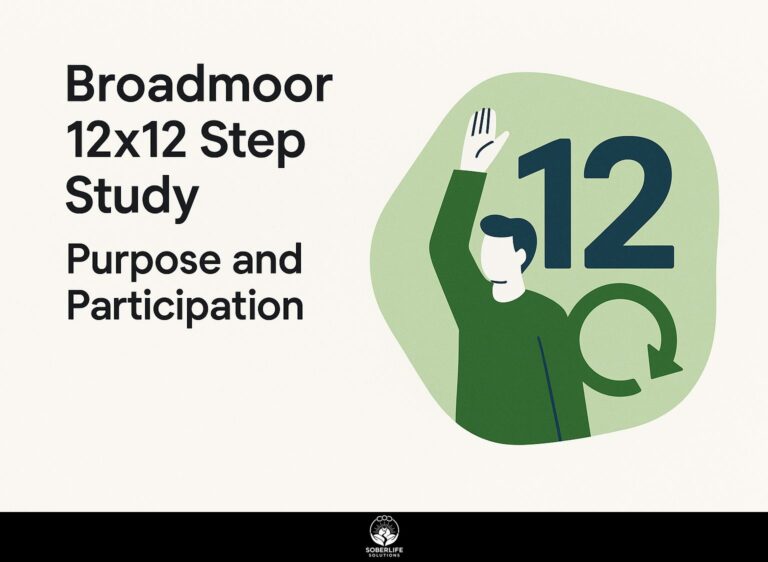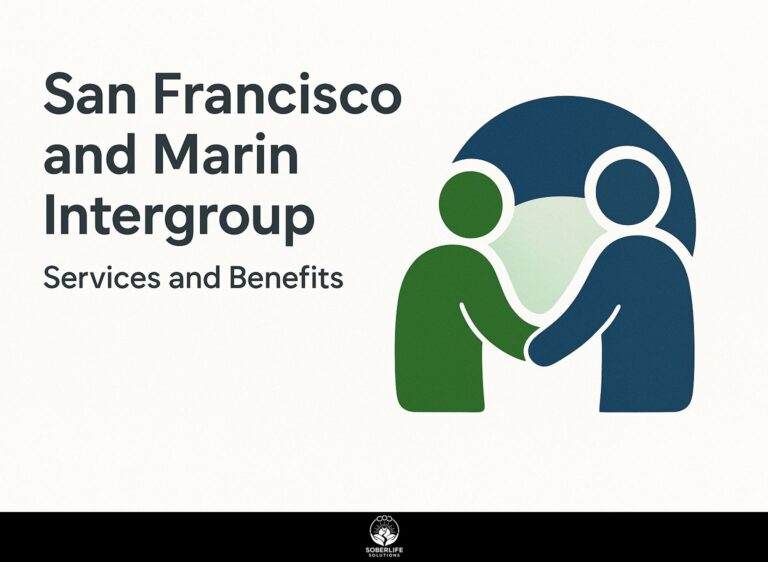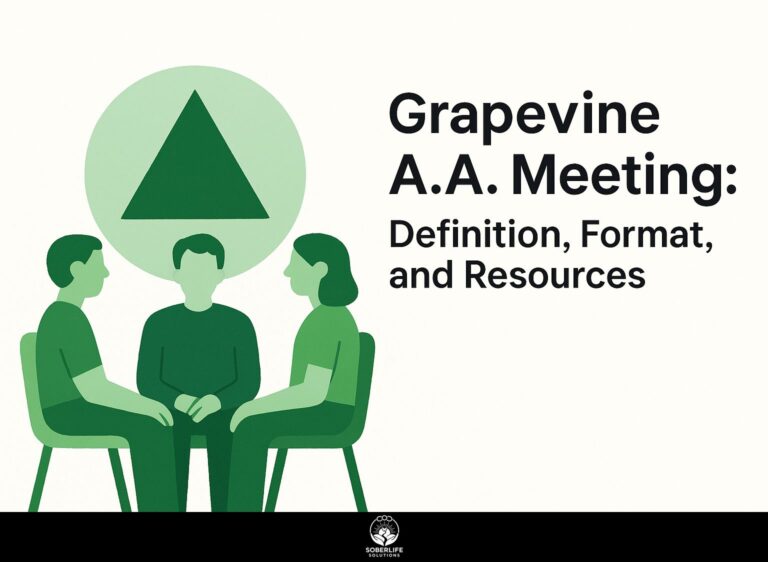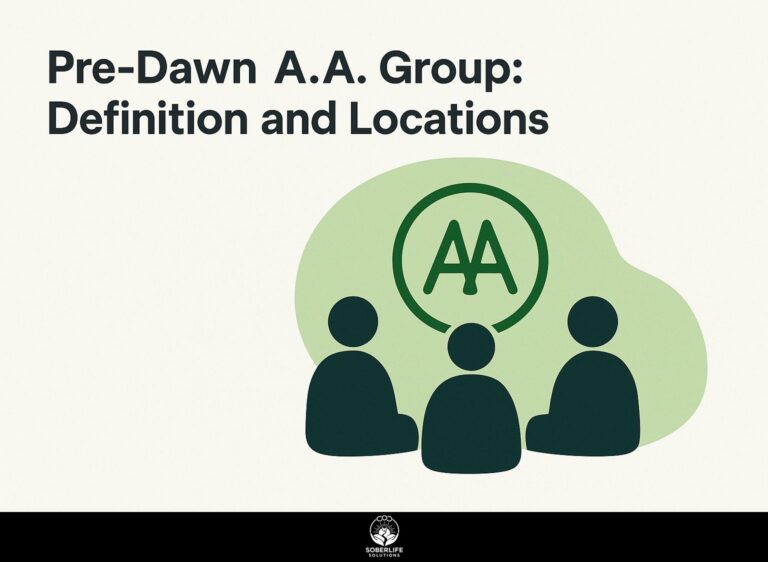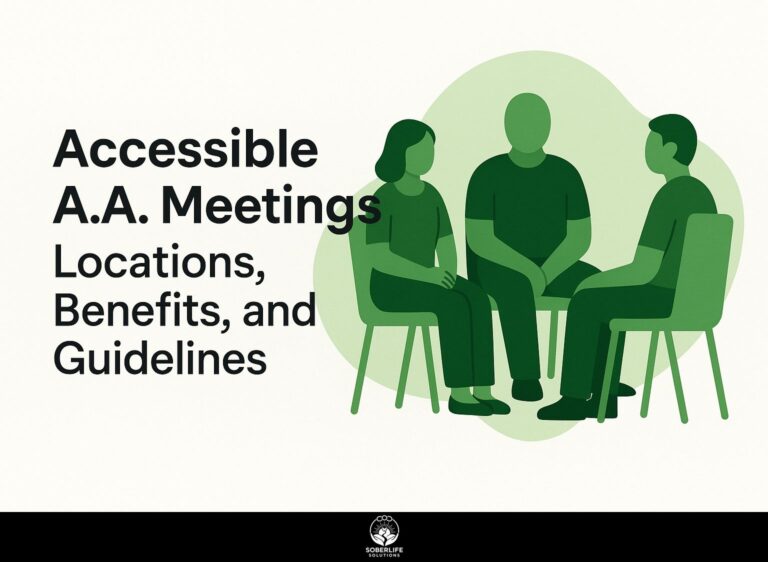Babysitting Available A.A. Meetings: Benefits and Locations
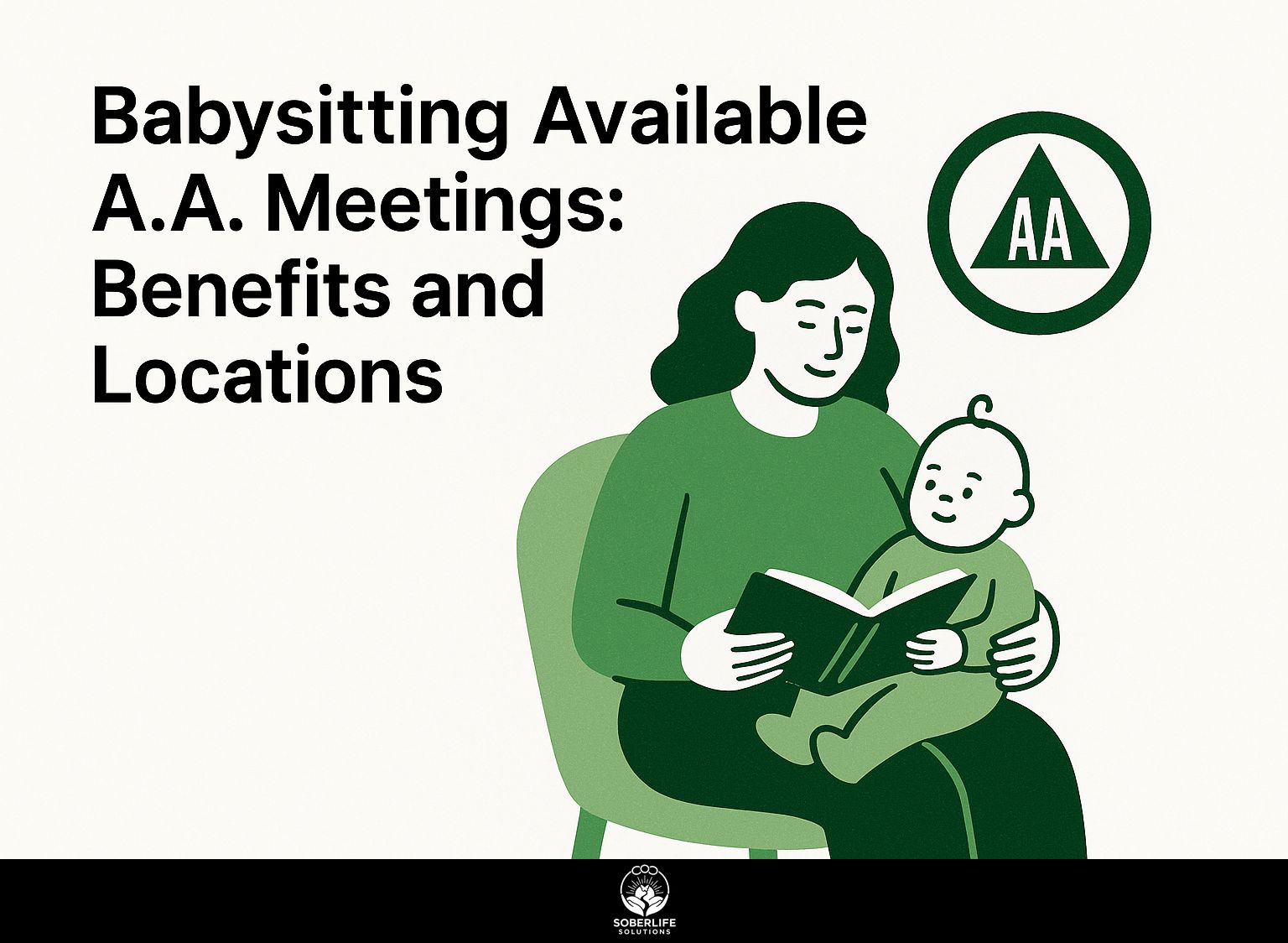
Need help with alcohol addiction recovery? A.A. meetings in Fenton and Arnold, Missouri, provide essential help for people looking to recover. With babysitting services available, attending these meetings becomes easier for parents. This article discusses the advantages of A.A., such as emotional help and staying responsible. It also gives important details about where meetings take place and babysitting services nearby. Join a community dedicated to healing and growth!
Key Takeaways:
1.
2.
3.
4.
5.
Overview of Alcoholics Anonymous
Alcoholics Anonymous is essential for recovery, using the 12-step program to help members with their personal development.
The 12-step program encourages individuals to take charge of their actions by participating in a supportive group environment. As described in the Twelve-step program article on Wikipedia, this method provides a structured path for sobriety.
Each step, such as admitting a problem with alcohol or asking for forgiveness, helps members face their challenges. The Big Book, which shares personal stories and foundational principles, serves as a critical resource.
Members are encouraged to actively participate in group discussions and share their experiences, further deepening their connection with others. This peer support system strengthens commitment to sobriety and helps develop humility and empathy among participants. For those seeking to extend their support network, exploring ways to [find and engage in recovery communities](https://soberlifesolutions.com/recovery-communities-support/) can provide essential guidance.
Importance of Support Networks
A strong support network is important, providing a safe space where people can talk about their experiences and difficulties without fear of judgment.
In Alcoholics Anonymous (A.A.) meetings, mutual support greatly helps personal growth and emotional strength. Joining group activities helps people feel connected, which is important for their recovery.
For instance, studies show that individuals engaged in regular meetings improve their sobriety rates by 20-30% compared to those who attend infrequently. Telling personal stories helps people learn ways to manage challenges. Feedback from others can reduce feelings of loneliness, which supports ongoing recovery. Additionally, as highlighted in Research from ScienceDirect, the role of social network support significantly influences treatment outcomes, underscoring the value of community connections. Related insight: A.A. Meetings: Support, Importance, and How to Join for Beginners delves into the foundational aspects of these vital gatherings.
Benefits of Attending A.A. Meetings
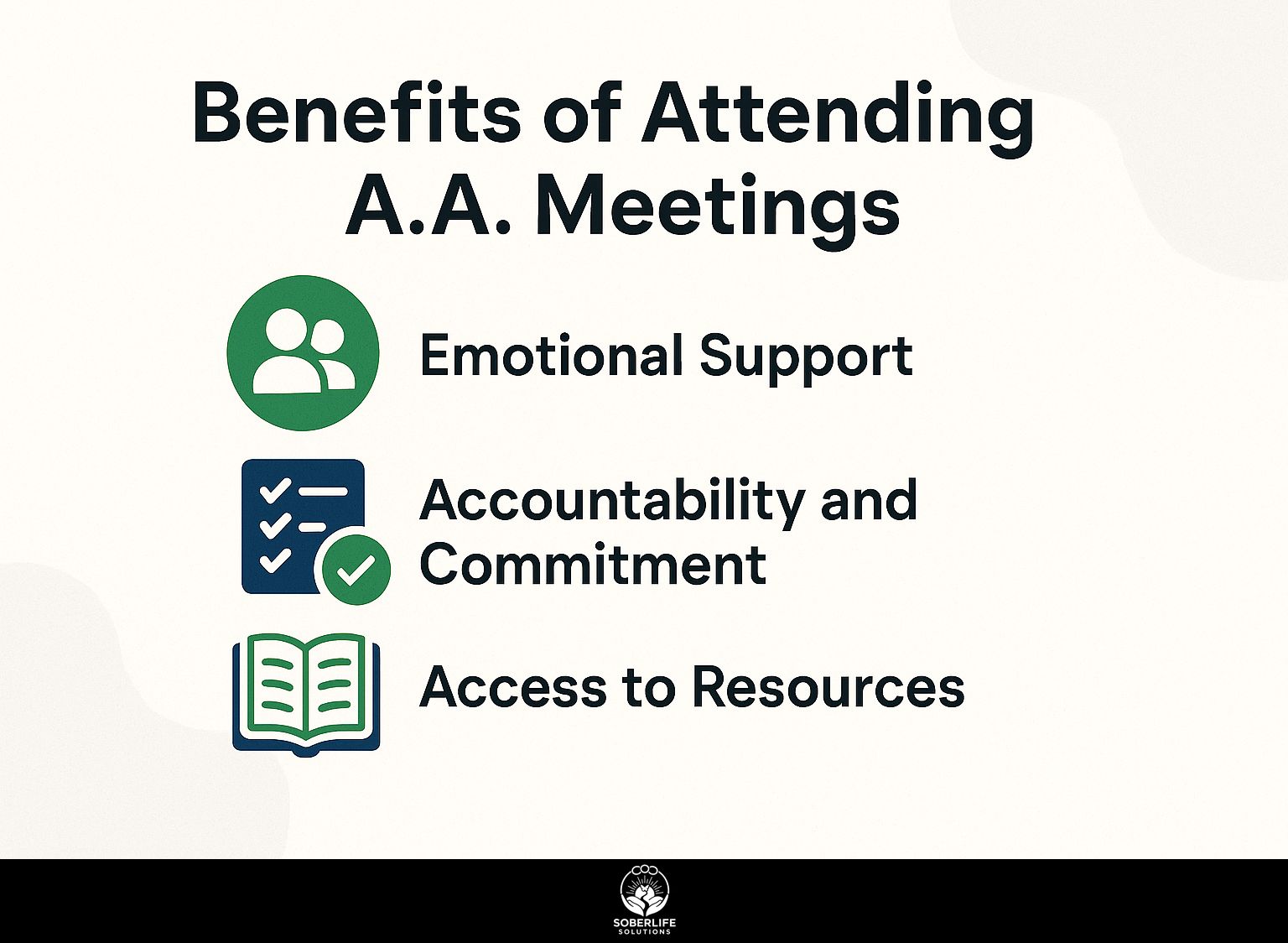
Going to A.A. meetings provides many benefits, such as better emotional support, accountability, and access to useful recovery resources. This includes understanding the essential role these meetings play in addressing challenges and providing support-a topic thoroughly covered in our article on why A.A. meetings are essential.
Emotional Support
Emotional support in A.A. meetings greatly lessens feelings of being alone, giving attendees a sense of community and connection.
Telling personal stories helps members form strong emotional bonds. For example, John, who has been attending for a long time, talked about his struggles with alcoholism. This made him feel better and encouraged others to share their stories too.
Tools like the “Sharing Session” encourage this exchange, allowing members to express their feelings in a safe environment. Testimonials like Sarah’s, who found strength in the collective resilience shared during meetings, highlight how these narratives create a supportive network.
Such connections can be very important for people in recovery, showing how community matters.
Accountability and Commitment
Going to A.A. meetings regularly helps members stay responsible and motivates them to stick with their recovery.
When members share their stories and set clear goals, they create a supportive community that promotes personal responsibility. For example, going to weekly meetings helps you keep up with your progress and encourages you to share updates or any problems you encounter.
Tools like sobriety apps can make this process better by recording progress and noting triggers. Individuals who engage actively-such as by leading discussions or volunteering at events-report higher retention rates, often exceeding 70% over the long term, solidifying the benefits of sustained interaction.
Access to Resources
A.A. meetings connect individuals to a wealth of resources, including literature, local services, and professional support options.
Important materials from A.A. include the ‘Big Book,’ which provides personal stories and recovery advice, as well as online forums where members can exchange experiences and tips.
Local directories usually offer phone numbers and addresses for mental health services close to you, allowing people to get more help if necessary.
Including these resources in personal recovery plans is important; they offer direction, a feeling of community, and responsibility, aiding people in effectively handling their path to sobriety.
Types of A.A. Meetings
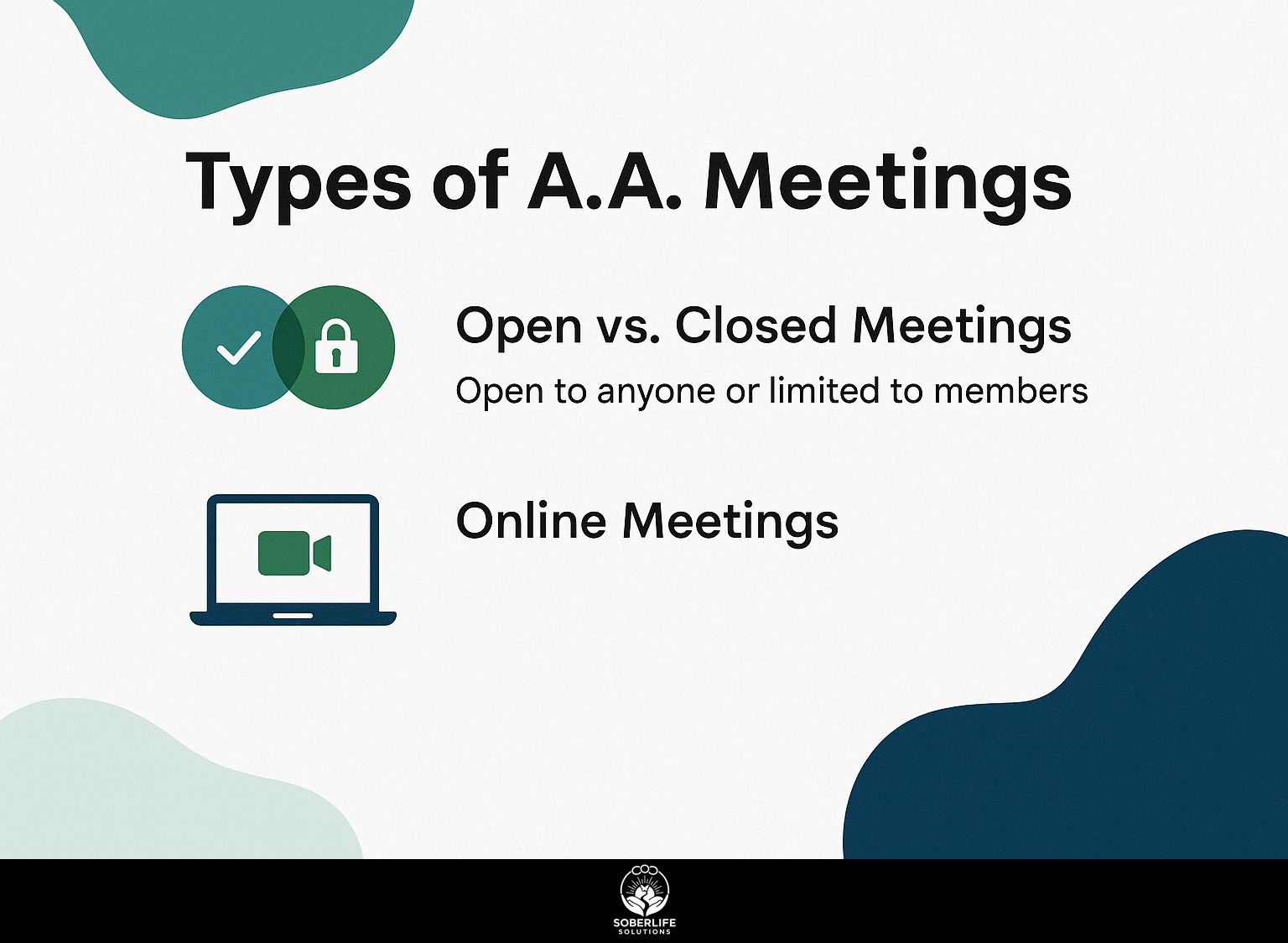
A.A. meetings are offered in different styles, such as open and closed sessions, to suit the different needs and preferences of participants. If interested in understanding the distinctions further, you might explore our detailed guide on A.A. Meeting Formats: Open vs. Closed Meetings.
Open vs. Closed Meetings
Open meetings welcome anyone who is interested in recovery. Closed meetings are only for those who identify as alcoholics, allowing for more personal sharing.
Open meetings, such as ‘Group 83’, provide an inclusive space where friends and family can learn about the recovery process. This accessibility encourages community support and awareness.
In contrast, closed meetings prioritize confidentiality, allowing participants to share personal experiences without fear of judgment. For example, many Alcoholics Anonymous chapters hold weekly closed meetings strictly for those identifying as alcoholics, creating trust and intimacy.
Both formats are important in the process of recovery, addressing various needs of people in the group.
Online Meetings
Online meetings have gained popularity, providing accessibility to those unable to attend in-person sessions, especially during the pandemic.
These virtual formats encourage higher attendance, as participants can join from anywhere, eliminating travel barriers. The anonymity provided can encourage open conversations.
Platforms such as Zoom and Microsoft Teams support seamless video conferences, while services like Google Meet facilitate easy access for users with a Google account.
To help members locate appropriate meetings, the A.A. website offers lists of online gatherings. Notably, ResearchGate examined how individuals seeking help for substance use disorder adapted to virtual 12-step meetings during the COVID-19 pandemic, highlighting the effectiveness of these platforms.
Using these tools can increase involvement and interest in different group situations.
Finding A.A. Meeting Locations
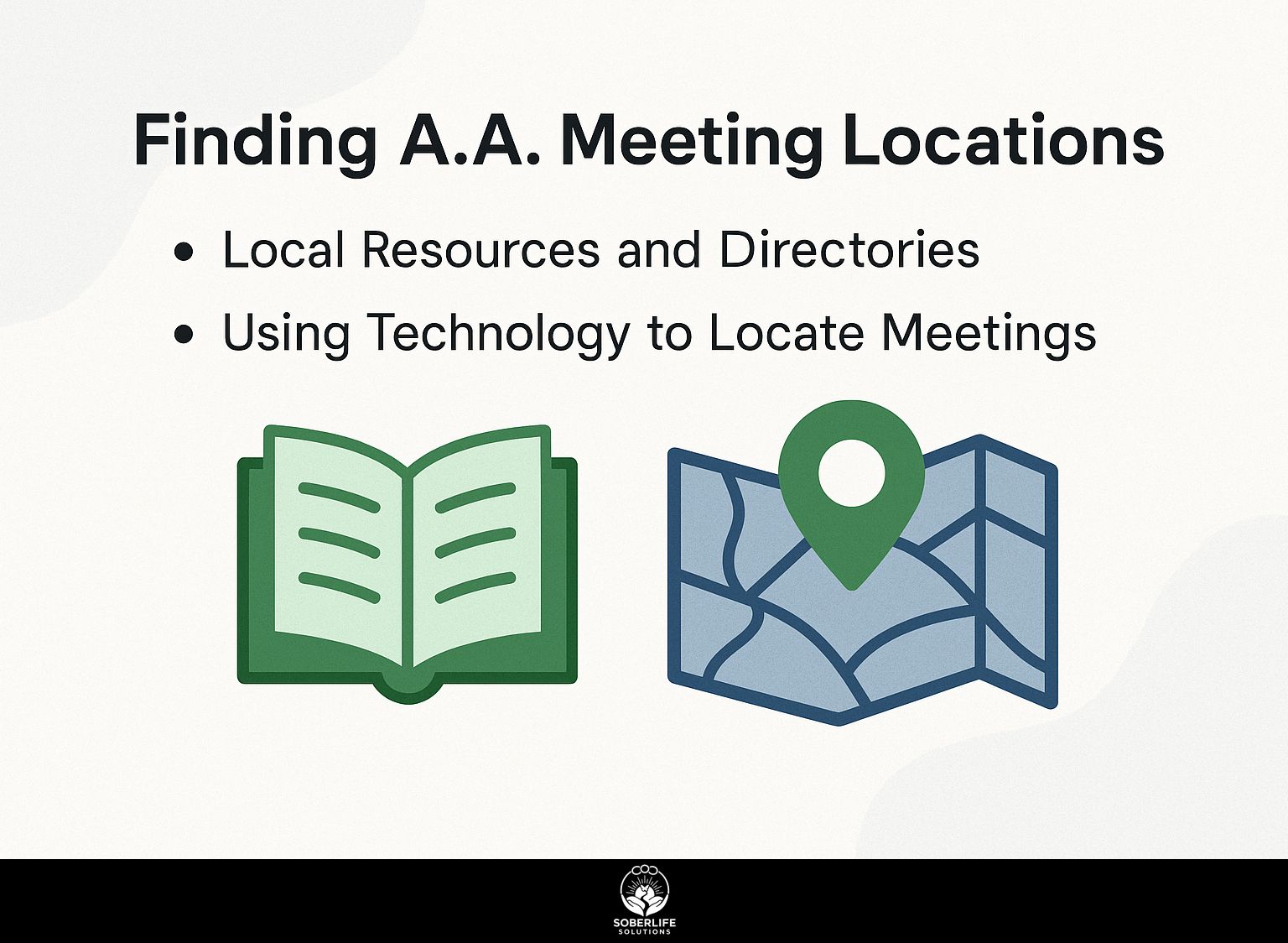
Finding A.A. meetings is important for those looking for support, with different local resources and technology helping them find sessions close by. For an extensive analysis of resources available, our comprehensive guide on accessing AA meetings is highly recommended.
Local Resources and Directories
The Missouri Department of Mental Health offers detailed lists of A.A. meeting places across the state.
The Substance Abuse and Mental Health Services Administration (SAMHSA) offers a national helpline at 1-800-662-HELP, which can connect individuals with local A.A. resources and meeting schedules.
Local A.A. intergroups also maintain up-to-date maps and calendars, often refreshed weekly. The St. Louis Central Office updates its online directory every Thursday to keep meeting details current.
Using these resources can be important for people looking for help and a feeling of belonging.
Using Technology to Locate Meetings
Technology is important for helping people find local A.A. meetings using different apps and websites.
Apps like ‘Find a Meeting’ provide user-friendly interfaces for searching Alcoholics Anonymous meetings by location. Users can filter results by day and time for convenience.
The official A.A. website includes a meeting locator tool where one can enter their zip code to find local gatherings. Both tools provide maps you can click on and contact details for each meeting, helping you plan to attend.
To get the best use, turn on location services on your device to find nearby options quickly.
Babysitting Services for A.A. Attendees
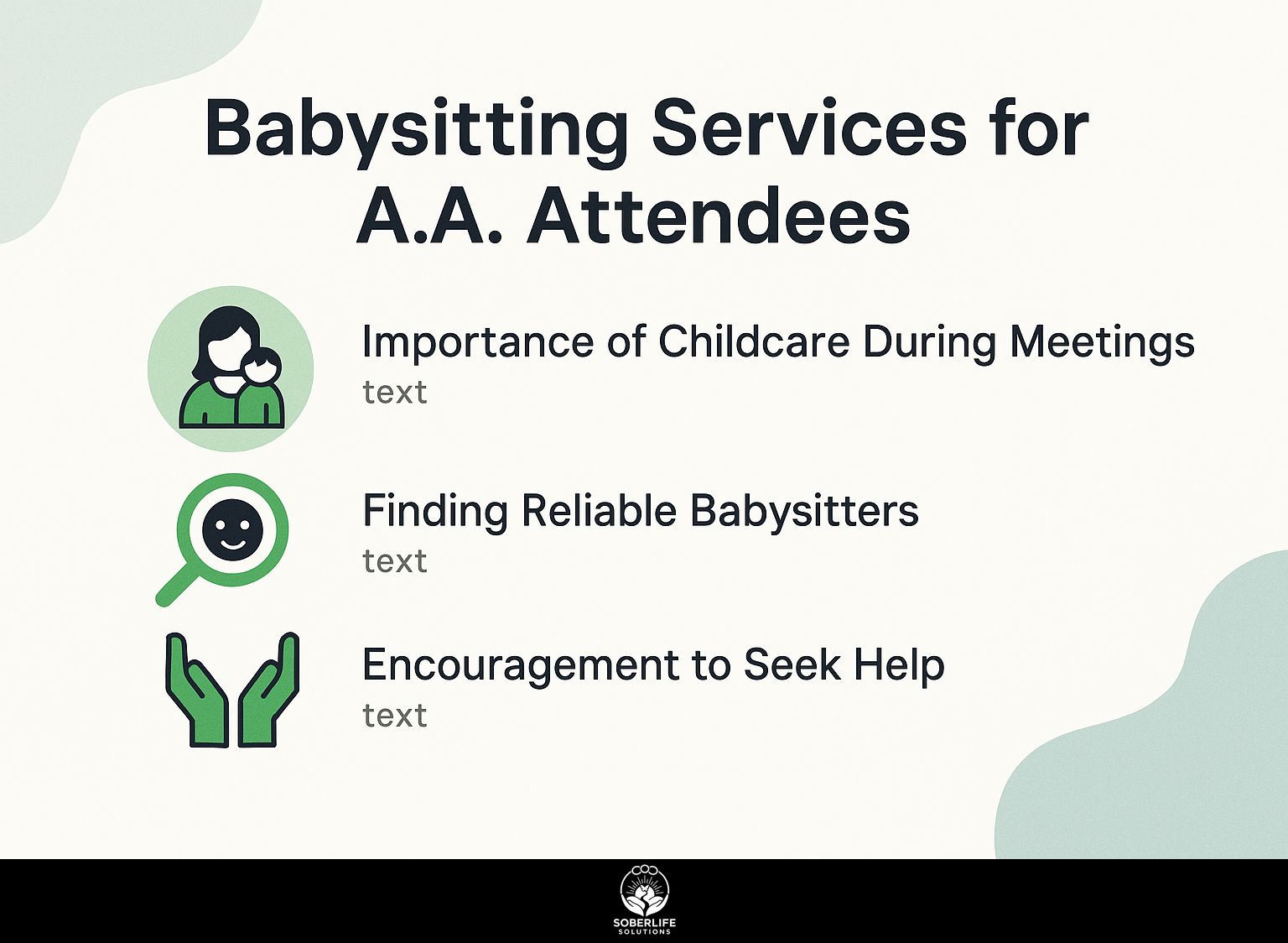
For many parents, attending A.A. meetings can be difficult without trustworthy childcare, leading to the need for babysitting services during these meetings.
Importance of Childcare During Meetings
Offering childcare during A.A. meetings allows parents to concentrate on their recovery without being concerned about the safety and care of their children.
Studies show that providing childcare can increase meeting attendance by 30-50%. For instance, a study from the National Institute on Alcohol Abuse and Alcoholism found that parents attending meetings with childcare felt more engaged and supported.
Implementing this can involve local partnerships with childcare providers or utilizing community centers. Local grants can cover the costs of these services, reducing financial strain.
In the end, building a space that helps parents and encourages recovery results in closer community ties and improved recovery results.
Finding Reliable Babysitters
Finding trustworthy babysitters can be facilitated through local community boards and A.A. member referrals.
Using platforms like Care.com and Sittercity gives you more candidates to choose from.
When assessing possible babysitters, ask about their background and how they handle child care. Always request references and perform background checks using services like Checkr to feel secure.
It’s beneficial to arrange a trial babysitting session to observe how they interact with your children. Writing down what you like and need can make it easier to find a sitter who fits your family values.
Encouragement to Seek Help
Recovering from addiction can be difficult, but attending A.A. meetings can greatly increase the chances of getting better.
Being part of the A.A. community provides essential support. Going to local meetings helps people take responsibility and meet others with similar experiences.
Look for meetings listed on the A.A. website, which can help you find a group that meets your needs, whether it’s a large gathering or a smaller, intimate setting. Talking with sponsors can give you specific advice.
Joining local gatherings helps build connections, which are important for healing and support.
Frequently Asked Questions
What are the benefits of attending A.A. meetings that offer babysitting services?
Attending A.A. meetings with babysitting available can provide parents with the opportunity to focus on their recovery without worrying about their children. This allows for a more productive and focused meeting experience.
What are the qualifications of the babysitters at A.A. meetings?
The babysitters at A.A. meetings are trained and experienced in working with children of all ages. They are also knowledgeable about the recovery process and provide a safe and nurturing environment for children while their parents attend the meeting.
How do I know which A.A. meetings offer babysitting services?
You can check with your local A.A. chapter or search for A.A. meetings online to see which ones offer babysitting. You can also ask fellow A.A. members for recommendations or reach out to the meeting organizers for more information.
Are there any additional costs for using the babysitting services at A.A. meetings?
In most cases, there are no additional costs for using the babysitting services at A.A. meetings. However, some meetings might request a small donation to pay for the babysitters. It is best to inquire about this beforehand.
Can I still bring my child to an A.A. meeting if there is no babysitting available?
Yes, you are still welcome to bring your child to an A.A. meeting even if there is no babysitting available. However, remember that the meeting might not be very effective because you might be distracted by your child.
What should I do if my child has special needs or requires specific accommodations during the A.A. meetings?
If your child has special needs or requires specific accommodations, it is best to discuss this with the A.A. meeting organizers beforehand. They might be able to organize things to suit your child’s needs better, making the experience enjoyable for you and your child.

